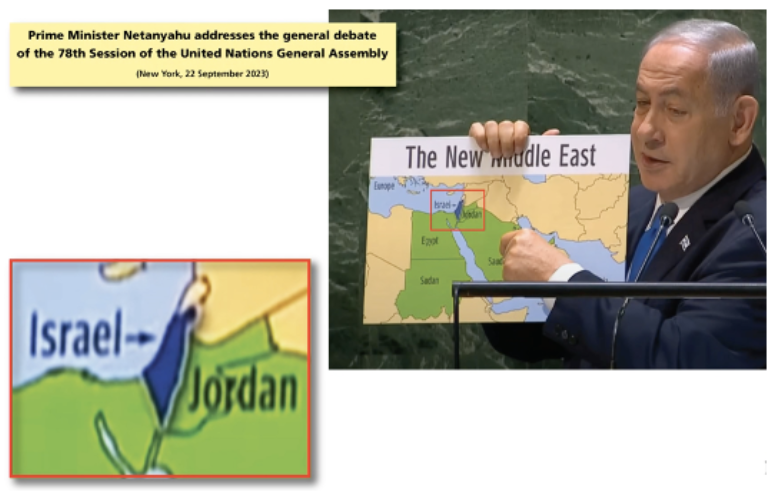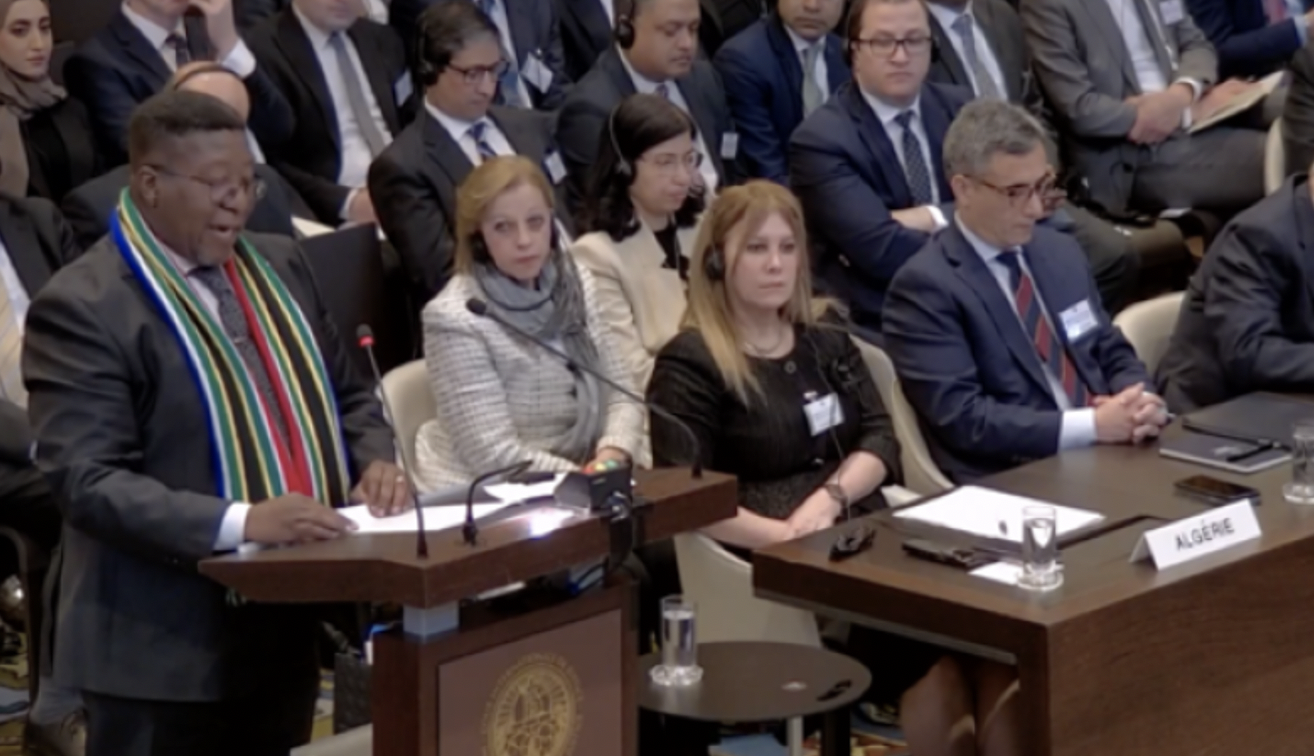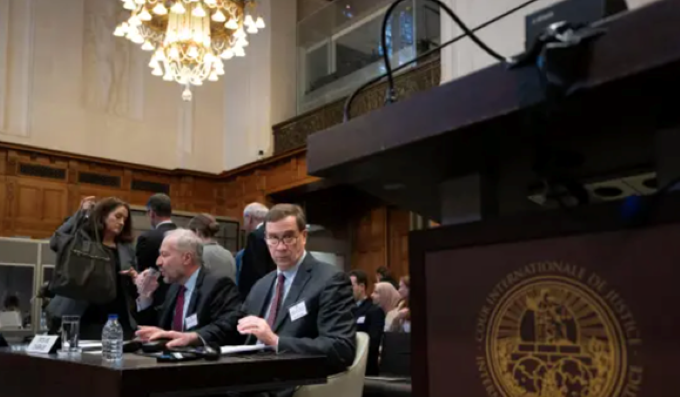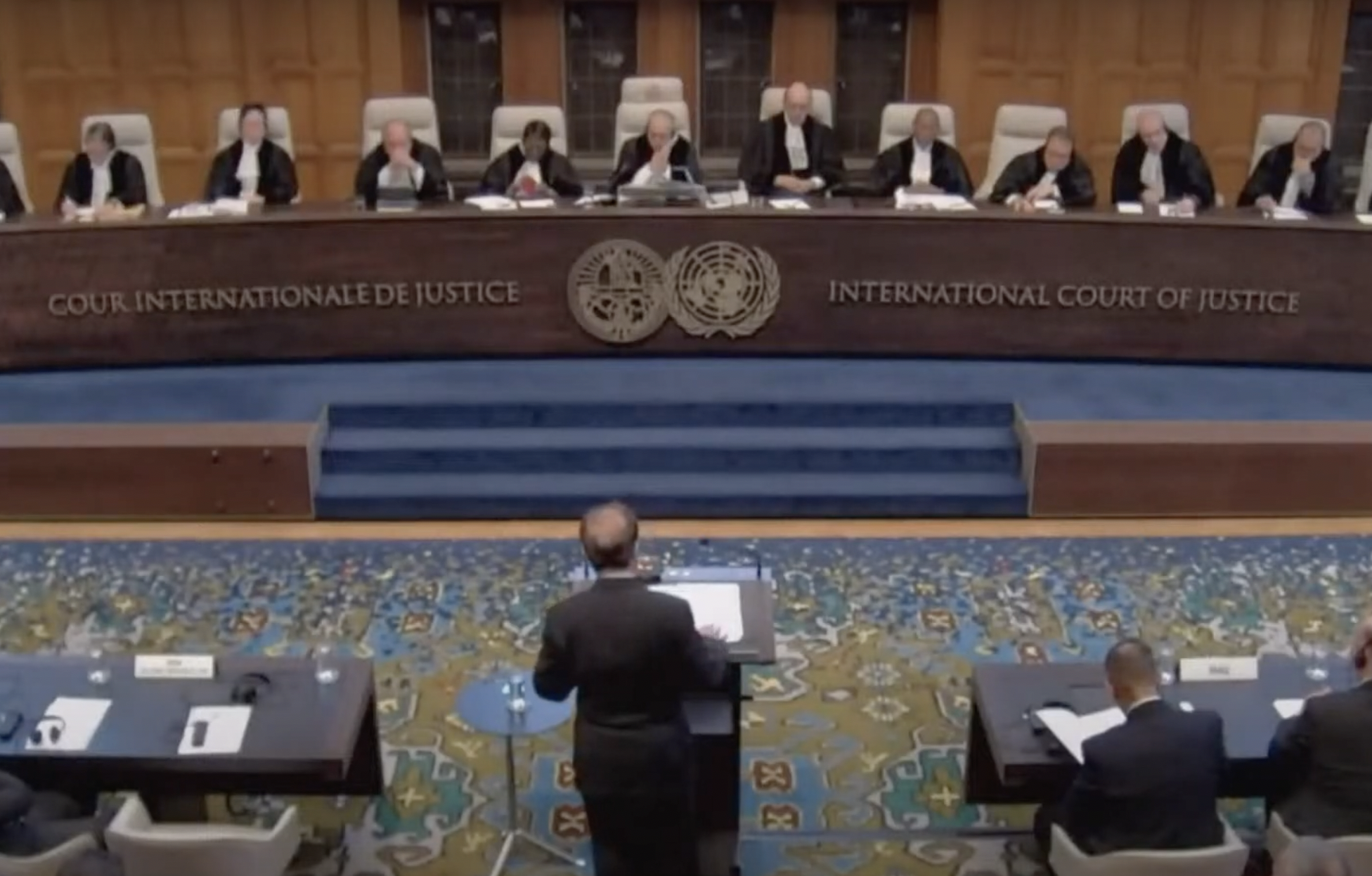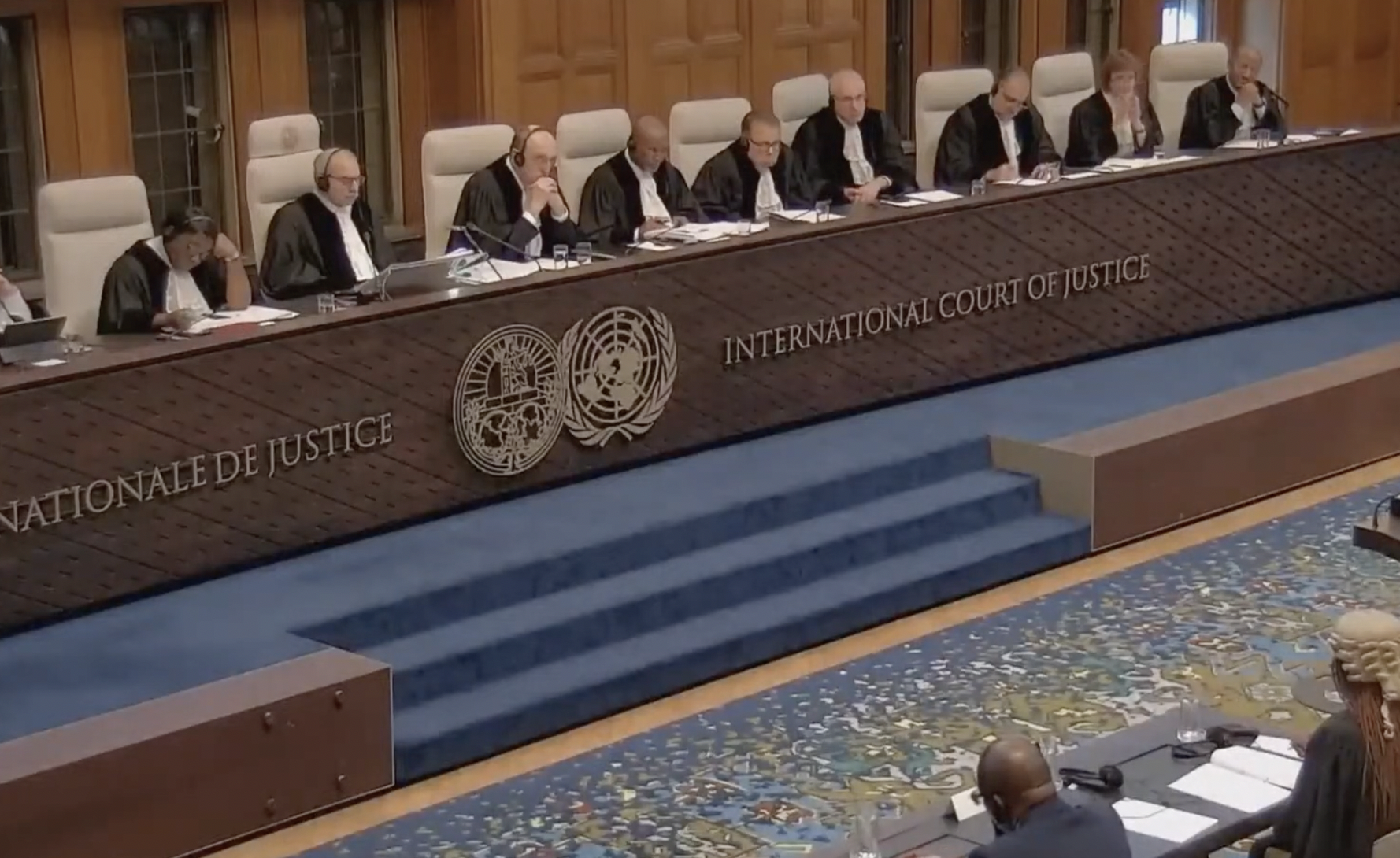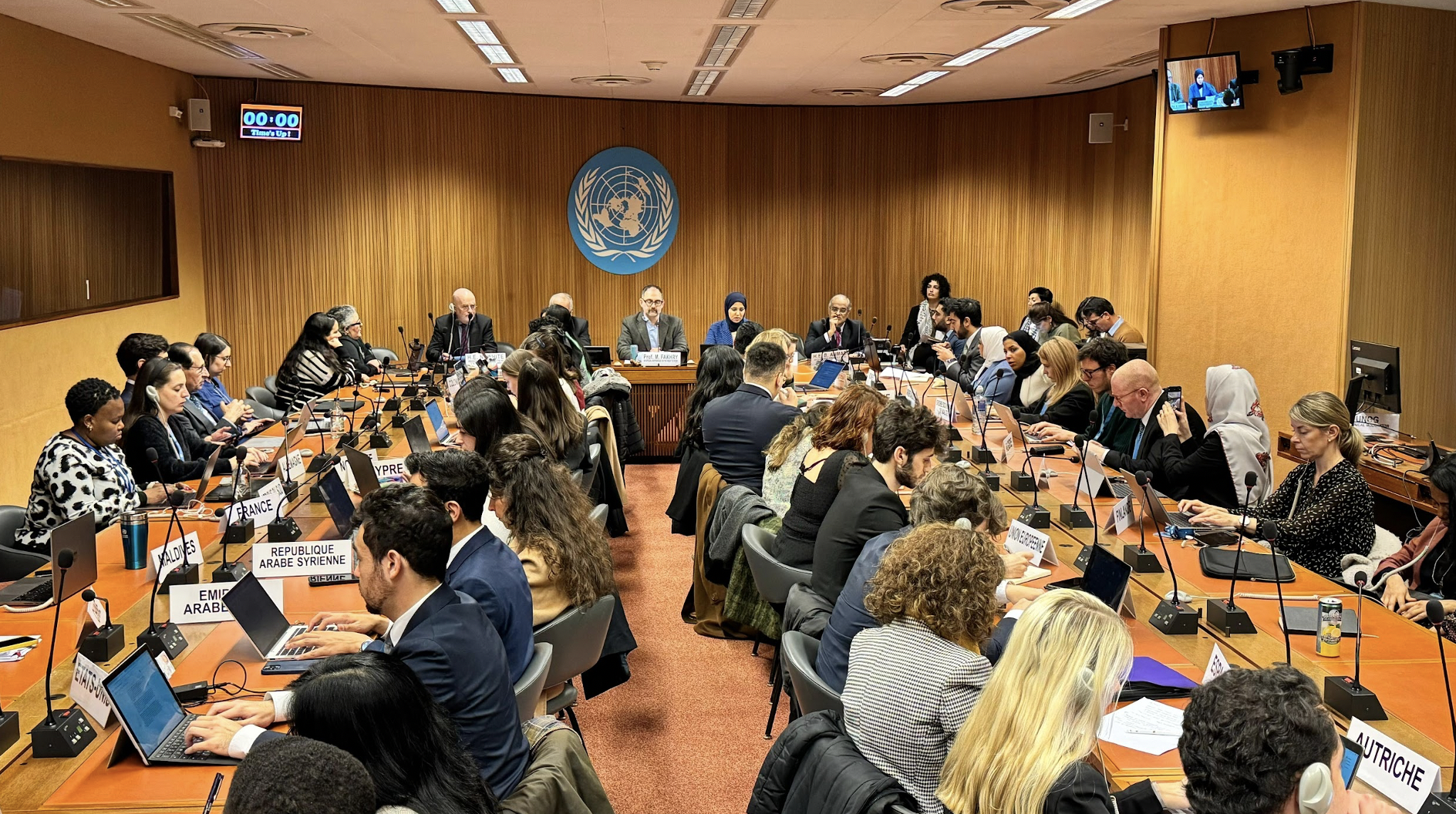Day 5: the International Court of Justice (ICJ) Continues to Hold Public Hearings in the Advisory Proceedings - State of Palestine
On 23 February 2024, the court continued hearings with delegations from the United Kingdom, Slovenia, Sudan, Switzerland, Syria, and Tunisia responding to a request from the United Nations General Assembly (UNGA) regarding issues concerning the occupied Palestinian territory. The International Court of Justice (ICJ, or the Court), inter alia, grappled with the following questions:
"(a) What are the legal consequences arising from the ongoing violation by Israel of the right of the Palestinian people to self-determination, from its prolonged occupation, settlement and annexation of the Palestinian territory occupied since 1967, including measures aimed at altering the demographic composition, character and status of the Holy City of Jerusalem, and from its adoption of related discriminatory legislation and measures?” and “(b) How do the policies and practices of Israel referred to in paragraph 18 (a) above affect the legal status of the occupation, and what are the legal consequences that arise for all States and the United Nations from this status?".
Addressing the Court on 23 February 2024, representatives of several delegations continued to agree on the nature of Israel’s occupation. For instance, the Syrian Arab Republic reaffirmed the principle that "States shall not obtain legal rights from unilateral acts that do not comply with international law." Syria underscored the "temporary nature of the occupation," emphasising that "even if it is a fait accompli, this does not and will not give the occupying Power the right to acquire sovereignty over the occupied territories, no matter how long this brutal occupation lasts." Syria reiterated the imperative of implementing "all relevant international resolutions to end the Israeli occupation of all occupied Arab territories" to ensure stability in the Middle East and uphold the credibility of the United Nations system. Addressing the Court, Syria asserted that its role today was not to create new rights but to "reveal rights that are violated by Israel, every day since 1948." Syria condemned Israel's actions, including genocide in the occupied Gaza Strip and attacks on Syria and Lebanon, calling for accountability and an end to the illegal occupation. In urging all states to prevent further annexations and illegal settlements, Syria stated the necessity of establishing a viable Palestinian State for peace and stability.
UK Calls on ICJ to Decline Issuing an Advisory Opinion
On the other hand the representative from the United Kingdom (UK) sparked debate by affirming the nation's respect for the court while challenging certain characterizations of actions related to the Israeli-Palestinian conflict. While reiterating the UK's commitment to a negotiated two-state solution, the speaker rejected certain portrayals of Israel's actions and emphatically disputed interpretations of the UK's conduct and motivations. The UK's stance on the matter was grounded in legal principles, with submissions focusing on matters of propriety rather than the merits of the request. Ms Langrish reiterated the UK’s stance on the jurisdiction of international courts in issuing opinions that may affect the rights or duties of states involved. According to the UK's submission,“The United Kingdom’s submission is that where a request is ‘directly related to the main point’ of a dispute between two parties, then the Court should refrain from giving an opinion.” The UK's position focused on the importance of maintaining the integrity of the non-circumvention principle, indicating that answering the request as currently formulated would constitute a breach of this principle.
The Non-Circumvention Principle
Also in representation of the United Kingdom before the Court, Professor Sarooshi addressed the Non-Circumvention Principle[1]. The UK addressed the other delegations' counter-argument that the non-binding nature of advisory opinions allows the Court to opine on a bilateral dispute. The UK contended that such an approach would undermine the practical application of the non-circumvention principle. By emphasising the serious legal consequences that may result from the Court's findings and the need to respect state consent in resolving disputes, the UK advocated for the Court to uphold the non-circumvention principle.
The United Kingdom voiced concerns regarding the practical feasibility of the Court's ability to address the multifaceted issues posed by the current request. Pointing out the complexity of the task at hand, the UK representative highlighted, "It is unclear how the Court can properly make the broad range of findings required to answer the request and consider such a volume of material." Moreover, the UK expressed the necessity for the Court to reach its own independent findings of fact rather than deferring to United Nations reports, stating, "It is no answer to assume that the Court can defer to the reports of United Nations bodies. The Court must reach its own independent findings of fact."
Addressing the contention that an advisory opinion might assist in the negotiation process, the UK representative presented a compelling rebuttal, pointing out the potential pitfalls of such an approach. Citing examples from past jurisprudence, the UK argued that rendering legal conclusions on the parties' obligations could compromise their negotiating positions, thereby contravening the Court's mandate to maintain the integrity of the parties' legal positions. It continued to highlight the foundational principles of reciprocity and negotiation embedded in the Security Council framework’, stating that an unconditional order directed at only one party could undermine the framework's fundamental requirements. Ultimately, the United Kingdom urged the Court to decline the request in its current form, citing the numerous challenges and potential risks associated with rendering an advisory opinion under the prevailing circumstances. The United Kingdom proposed an alternative approach rooted in the Court's jurisprudence, aiming to endorse the implementation of Security Council resolutions 242 and 338, which call for a negotiated solution to the Israeli-Palestinian dispute. Emphasising the significance of these resolutions, the UK suggests reframing the request's terms to respect the existing framework and avoid prejudicing the parties' bilateral dispute.
Geneva International Centre for Justice (GICJ) continues to closely monitor the proceedings at the ICJ concerning the occupied Palestinian territory with a commitment to justice and human rights. We acknowledge the importance of the ICJ’s public hearings in the advisory proceedings regarding the State of Palestine. These hearings represent a crucial step towards addressing the ongoing violations of international law in the OPT. GICJ urges the ICJ to carefully deliberate the evidence presented, emphasising the need for a clear and unequivocal determination regarding the unlawfulness of Israel's actions and the legal obligations of all states to uphold international law.
Read more from GICJ:
#Geneva4Justice #GenevaInternationalCentreforJustice #Israel #Palestine #OccupiedPalestinianTerritory #IsraeliOccupation #InternationalCourtofJustice #ICJ
[1] The non-circumvention principle, in the context of international law, refers to the idea that international courts and tribunals should not render decisions or opinions that effectively bypass or circumvent the core issues of a dispute between parties. It emphasises the importance of respecting the sovereignty of states and their right to determine the scope and manner in which their disputes are resolved. Essentially, it prevents courts from rendering judgments or opinions that could indirectly interfere with the underlying dispute without the consent of the concerned parties.




